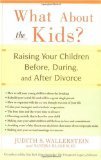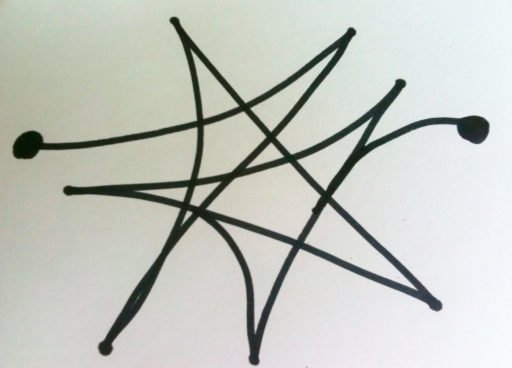- [email protected]
-
205 S Main St, Sharpsburg, PA 15215, USA
205 S Main St, Sharpsburg, PA 15215, USA

Breaking up is one of the most painful experiences there is. Letting go of someone you’ve loved can be exquisitely hard to do for many people, especially if the breaking up was not your idea.
If you’ve been taken by surprise, if you’ve been misleading yourself about how they feel or if you’ve been lied to, full recovery from breaking up can seem completely out of reach.
When breaking up it’s very human to torture yourself wondering what happened, is there something wrong with you and what could you have done differently? Blaming yourself and the lingering mystery of “why me” can infiltrate and discourage the beginnings of new relationships. People can take years to untangle themselves after breaking up.
Life is about making loss bearable. Whether we become handicapped, or someone dies, our children grow up or we lose out on a relationship, we have to learn to cope with loss. While you may still feel the spark, you have to deal with the reality that the other person doesn’t.
Breaking up can feel impossible to accept and that’s exactly what needs to happen. You can’t make someone love you, no matter how hard you may try.
In my practice I see so many young women who expect too much, too soon. They are very focused on all the details that hint of a long term future. They glide over the mixed messages and ambivalence that is the undercurrent in many relationships. This is called denial.
Despite breaking up, it is worth the risk of loving someone else more than they love you. In the beginnings of things someone always gives more. If that’s who you are, then accept the endgame may not work out the way you hope. Hoping for too much, too early can be a curse. Uncertainty is a huge part of romance.
Putting the pieces back together after breaking up can be very difficult. Who wants to date when you just had your heart broken? Give yourself time to grieve. It’s important to ask yourself do you really miss him/her or do you miss being part of an intimate relationship?
Are you grieving the loss of the relationship or the loss of your illusions about what you believed was happening before the break up?
The relationship was not what you hoped. The best thing you can do is accept that dating is a painful process. That means you will get sucker punched by someone you love more than they love you. It’s part of the deal.
Breaking up is always a possibility in any relationship if you are authentic.
Ask yourself, “Are you so focused on finding a relationship, that you are avoiding defining a more meaningful life for yourself?” There isn’t anybody out there who wants to be used to plug the empty hole inside of you. It is sensible to run away from too much neediness.
The best way to get over breaking up & a broken heart is by volunteering, learning to kayak or take up salsa dance lessons. Develop a less superficial lifestyle. Make your life matter whether you have someone or not.
The more you are able to define your own life as meaningful whether or not you have a partner the more likely you are to avoid breaking up insubstantial relationships.
Closure for a Broken Heart:
One technique that can be helpful for closure is to write goodbye letters. Two letters will be very useful to repair your heart after breaking up. The first can be an unedited dump that you then shred, burn or destroy. The second letter can be thoughtful and explore both the good and bad parts of the relationship.
Write your favorite memories. Write what you miss. Write about how you grew and changed from being in love. Write what was unfair or misunderstood about who you are. Write about feeling betrayed. Consider how you may have betrayed yourself.
Acknowledge the differences of who both of you are. Then try to take responsibility for your part in the problems, because it always takes two to kill off a relationship. Include your hurt, sadness and sense of betrayal. Tell them what you wish for them in their next relationship. Try to cover anything that will help you to say goodbye and glimpse the beginning of moving on after breaking up.
Then read it aloud to a really good friend who will be a witness and listen. Then you need to remove pictures and anything that will trigger your obsessing. For example, if they changed the brand of toothpaste you use, change back to what you used to brush with. If you lived together rearrange the furniture after breaking up.
Wait a week or so, then decide if you want to send them the letter or not. Ask the friend who listened what they think of the idea. Ask yourself will the letter help you to recognize this is the end of the relationship or are you really using the letter towards building false hope?
Read about expectations on the Depression page of this website.
Books to help with Breaking Up
Extreme Breakup Recovery by Jeanette Castelli
Getting Past Your Breakup: How to Turn a Devastating Loss into the Best Thing That Ever Happened to You by Susan Elliot
Obsessive Love: When It Hurts Too Much to Let Go by Dr. Susan Forward
Movies To Comfort When Suffering Through Breaking Up
(500) Days of Summer (2009) Follow this link to read review on my blog. Watch this delightful movie to learn about easy it is to make it all up in your head that you are headed towards long term loving.
Forgetting Sarah Marshall (2008) Raunchy & Fun! Watch as Jason Segel comes back to life.
Eternal Sunshine Of The Spotless Mind (2004) Memories are erased in this delightful love story with Jim Carey & Kate Winslet.
High Fidelity (2000) John Cusack plays a record store owner who recalls his top five breakups when he has a mid-life crisis.
Sliding Doors (1998) Gwyneth Paltrow is in a story with 2 endings, when she misses her ride & when she doesn’t.

Divorce is a very difficult time for everyone. No one emerges unscathed. It is heart wrenching to break up a family. Divorces are initiated by women seventy five percent of the time. Divorces among baby boomers are escalating.
Women usually take years to reach a decision and feel very tortured by it. Too often, men are oblivious to the depth of problems and will make huge efforts to change too late. Divorces are about each couple having their own unique story to tell.
When the story is told, there are never enough details to make sense of what happened in any of the divorces. Often we are only told a vague “we grew apart” or there is so much blame and anger in divorces that it’s too hard to discern any truth as to the why.
The truth is that it is a lack of respect for each others’ differences is the reason there are so many divorces.
Anger and disgust are rocket fuel for divorces. It always takes two people to kill off a relationship, no matter how easy it is to blame the other person. Divorces are usually about a frightening lack of communication that has built up over time.
Divorces are about the zero understanding of differences between two people. It is not communication when either person silently hoards, then dumps. Understanding requires both respect and time for dialogue. Only after 75 to 100 conversations, is it possible to soften the differences.
Most people rev themselves up for a giant moment of monologue about a problem, where they spew out their concerns. Therapy tries to create real dialogue with more “I” statements that can lead to greater understanding of how differences are problematic. Unfortunately too many people wait too long to go to therapy and are only resentful & really unwilling to reveal themselves.
Many divorces are about unspoken resentments that have piled up. Hoarded resentments erase vulnerability. For treatment to be successful there needs to be greater openness and more vulnerability. Divorces occur because it’s often too late.
The success of a relationship is built on the infrastructure of respect for differences. Respect is a casualty when one person has massive resentments, that they feel entitled to “cash in”. Then there is no going back to an opportunity for repair because bitterness has set in. Divorces & unspoken bitterness go together.
The primary problem of divorces is that bitterness and blame sets the stage for simplistic thinking and feeling: He/She’s bad VS. I’m good. This is a more comfortable place to be, which makes it a very popular position. Even when parents try to not overtly blame the other parent in front of the kids, it leaks out anyway like the 2010 BP oil spill on the gulf and destroys everything around it for years to come.

Divorces create parents who unconsciously, want their kids to choose their side.
Kids need to feel it’s okay to love both parents, not choose sides. It’s very painful for kids to see the pain parents cause each other. Kids are not equipped to integrate two points of view, and don’t need to be buried in details that can drown out what’s important in their own lives. Judith Wallerstein has written a very useful book, What About the Kids?: Raising Your Children Before, During, and After Divorce . She is a researcher who says toddler & 12 is the worst time for a divorce to occur for kids.
Divorces are a big deal because it represents broken dreams for everyone. Nobody likes to give up on their dreams. When the divorce papers finally arrive, many people collapse into tears under the weight of the finality of it all. They are surprised to find themselves being an emotional wreck. This is the final stage of giving up all hope and it’s a big deal. Letting go of every drop of hope is a difficult task that only happens slowly over time.
Another complication that can make divorces difficult is recognizing how foolish you were for love. Growing up is honestly facing painful situations. Maybe you’re coming to terms with having been emotionally manipulated for years. “How could I be so stupid?” is something everybody tortures themselves with, if they have a shred of self-awareness. “Why not?” is the natural response.
Do you want to be cold, calculating or indifferent? You took a risk on love and it’s a rare part of life to get lucky about. We all have a lot to learn and failed relationships are one of the best ways to become educated. We all deceive ourselves whether it’s pretending someone drinks too much but it’s not a real problem, or my working this many hours doesn’t really impact our kids.
Divorce can provide you with the opportunity to stop lying to yourself, not a small thing.
The reasons for divorces are very complicated. It takes working an entire lifetime to not end up divorced. Instead of only celebrating anniversaries, take that day to ask each other what’s missing or what needs to be improved? Unfortunately, people are very suspicious about couples therapy. In therapy, couples to learn to talk about hard things instead of deflecting which creates the problems.
After the Divorce:
Divorce is also an opportunity to learn from your mistakes. It’s astonishing how many people marry again, and unwittingly choose someone with many of the same core issues again. If you learn to look at yourself and blame less you might avoid repeating that same drama.
It is crucial to not get stuck in despair during divorce. Of course it is also a time to grieve the loss of your dream of having an intact family. Failure is a part of life that must be accepted and it is not a permanent state. Know that you will be surprised by new opportunities for connection in the more distant future.
Life is too short to be on the same treadmill of trouble. Finding the right person for a lifetime is a very tricky business. The novels of Jane Austen are all about looking for honesty and character when in love. Character can be achieved in going through a divorce with generosity and integrity.
10 Suggestions in Order to Divorce with Grace:
Reasons for Divorce:

The main reason people get divorced is because there is a lack of respect. Think of all the people you know who get divorces, & I bet you’ve experienced that lack of respect more than once.
Thinking and feeling in the extremes is one of the leading causes of divorce. It means you’re convinced “they” are the bad guys while you are the misunderstood good guy. This is called black/white or 1/10 thinking or feeling which often can be problematic. The dots in this picture represent the black and white, while the star represents the complexity of truth – there are lots of layers or pieces to it.
Adolescents have very black and white points of view, which is developmentally normal and one of the reasons parenting is so difficult. One of the gifts of aging and therapy is perspective. Truth is always in between two people and no one person has a corner on the market.
When a family arrives in therapy it’s a wonderful opportunity to help each person say and hear different points of view. I draw this picture to help them learn that it is only through lots of talking to understand different points of view, instead of avoiding that makes a family work. Perspective is all about the 4,5 and 6 in between the 1 and the 10 or the gray in between the black and the white.
We all love the simplicity of the black and white because it helps hold people together.
Let’s use the example of a boy who grows up in a step-family because his biological mom died when he was very young. He may never have been consciously aware of being angry that his mom disappeared. This unconscious feeling could be a part of the complicatedness of his experience. He grows up feeling very unhappy about his stepmother and believe she erases him. He’s even surprised one of his sisters likes their stepmom’s sense of humor. Then he reads an article about how hard it is to be a good step-parent and he’s old enough to factor this into his experiences. Maybe it was the situation that was part of why things were so difficult, instead of simply thinking “stepmom was the wicked witch”. Maybe stepmom was completely overwhelmed with the care of her own three and then three more kids were added into the mix. Maybe the boy was shortchanged and overlooked which is different than being neglected or suffering from absolute meanness.
Stories are almost always complicated, and in therapy there is the luxury of time to explore all of the possibilities. Black/white thinking and feeling is a giant short cut that lacks imagination about the more complicated truth.
Knowing this is right and this is wrong is very comforting. Certainty is very appealing. Uncertainty is a huge part of life and most people don’t like it very much. Sorting out complexity can be a lot of hard work. It’s easier to be black and white, you’re either with me or against me.
There is a loneliness that comes from a lack of understanding each other. It is impossible to understand each other without the time to learn the more complicated story. Certainty cheats any real opportunity for understanding.
People who are experts in manipulation and emotional blackmail love to shove others into feeling really bad about themselves. They use tools based in black/white thinking/feeling to hide behind a mask of love, concern and devotion and then use guilt, anger and manipulation to get what they want. (There is more information on the games that get played on the relationship triangles page of this website.)
Everyone who gets divorced had a part to play in the death of their marriage. It’s important to understand your part so as to not repeat it with someone else. The danger in black/white thinking and feeling is that you will never seriously claim your own responsibility in what happened. Silence is just as treacherous as someone saying mean things in a relationship.
Black and white thinking and feeling demands agreement without any room to compromise or negotiate. It’s really easy to sit in a room with two people and see how they both make sense.

Disagreement is an important part of every relationship. Disagreement/conflict are the only ways to accurately know each other. Black/white thinking & feeling doesn’t want to know a different point of view, because they are in love with their own assumptions; “Of course you want to buy a bigger house because I want to.” Making assumptions paves the way to getting what you want and has nothing to do with respecting differences.
Factoring in the other person’s point of view may mean losing out on what you want. Complexity requires more sweat equity. Longevity in any relationship depends upon understanding differences through tons of conversations.
The divorce rate is so high because too many couples give up on talking and being authentic with each other. Conversations are all about the grey or the 4,5 and 6 and require a lot of time which leads to understanding, openness and problem solving.
>Read more on divorce on my blog
Parents Without Partners: A place to find support and friends
Link to NYTimes article:
The Good Divorce
Movies about Divorce:
Don’t Divorce Me! Kids Rules for Parents on Divorce
The Squid and the Whale (2005) The director Noah Baumbach captures some of his own childhood experience on the screen. This gives this independent film a feeling of genuineness throughout.
Stepmom (1998)
Susan Sarandon portrays a terminally ill mother who has to come to terms with the superficial Julia Roberts who will take her place when shes gone. One of the hardest parts of divorce is sharing your children with other people, whether you like them or not.
Mrs. Doubtfire (1993)
Robin Williams cross dresses to be a housekeeper and spend more time with his children. Too many wives resent 50% shared custody with husbands.
Helpful Books:
Books to Help Kids:
Three books that can help with understanding extreme emotional manipulation:
Power with People: How to Handle Just About Anyone to Accomplish Just About Anything by Greg Lester